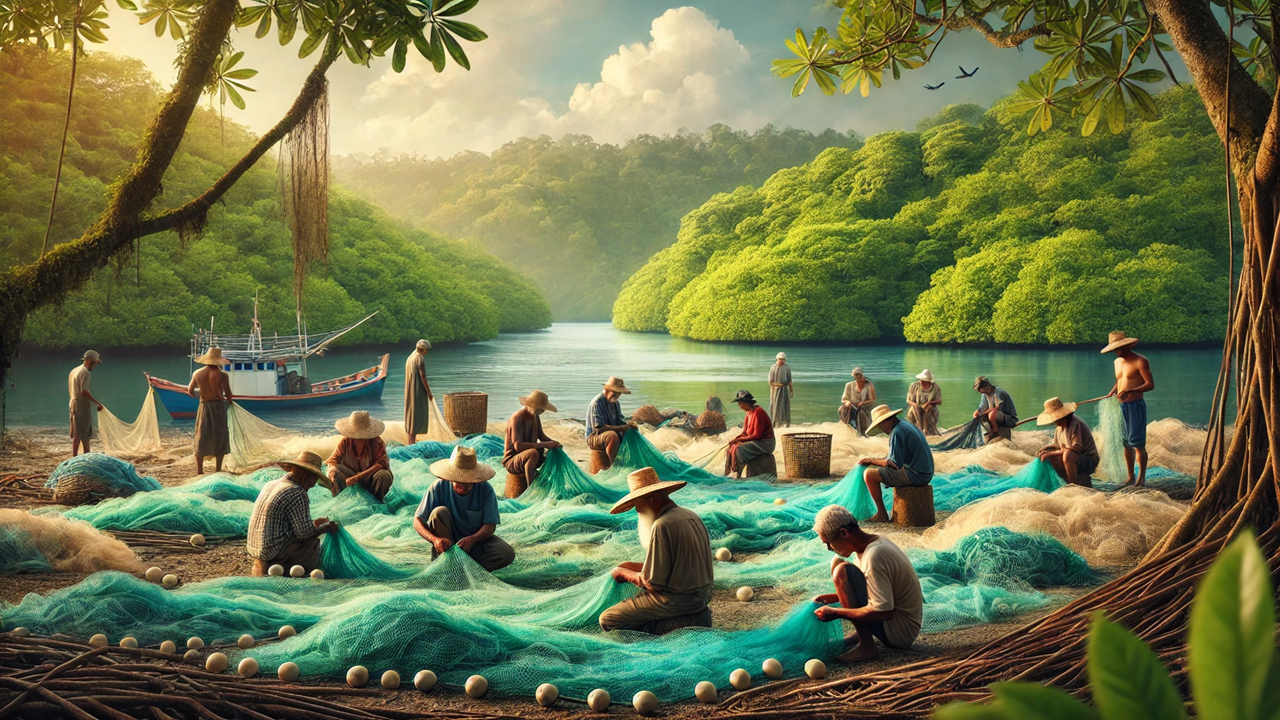Navigating the Tide: Boosting Economic Inclusion for Costa Rica's Artisanal Fishing Communities
This article explores the findings and recommendations of the World Bank report titled "Exploring Alternatives for the Economic Inclusion of Low-Income, Artisanal Fisher Communities in Costa Rica." It highlights the socio-economic struggles of artisanal fishing communities in Puerto Cortés and Golfo Dulce and outlines pathways for their inclusion into the broader economy through improved social protection, education, training, and gender-sensitive interventions.

Costa Rica, often celebrated for its robust social protection (SP) system and sustained economic growth, still faces challenges in addressing the needs of its most vulnerable populations. Among them are the artisanal fishing and mollusk-gathering communities of Puerto Cortés and Golfo Dulce. A recent report titled "Exploring Alternatives for the Economic Inclusion of Low-Income, Artisanal Fisher Communities in Costa Rica" sheds light on the socio-economic struggles of these communities and outlines potential pathways for their inclusion into the broader economy.
The Hidden Struggles of Coastal Communities
Despite Costa Rica's thriving economy, the benefits have not been evenly distributed, particularly among the country's low-income, artisanal fishing communities. These communities, largely situated in the South Pacific regions of Puerto Cortés and Golfo Dulce, have seen their livelihoods threatened by environmental restrictions aimed at preserving marine resources and the broader impacts of climate change.
According to the report, the majority of these communities operate at the lower end of the income distribution. Many fisherfolk and mollusk gatherers lack access to basic social protection programs, making them highly vulnerable. Their incomes are not only unstable but also often fall below the minimum wage, leaving them in precarious financial situations. Moreover, the report highlights a significant gender gap, with women in these communities earning less than their male counterparts and shouldering a disproportionate burden of unpaid work.
Pathways to Economic Inclusion
The report proposes a multifaceted approach to addressing these challenges, emphasizing the need for stronger collaboration between fisheries management and social protection systems. One of the key recommendations is to improve the targeting and profiling mechanisms of existing social protection programs to ensure that they reach the most vulnerable populations, including those in the artisanal fishing sector.
Education and training are also highlighted as critical areas for intervention. Many fisherfolk and mollusk gatherers have low levels of education, which limits their opportunities for alternative employment. Tailoring training programs to the specific needs of these communities, including skills such as customer service, basic English, and digital literacy, could significantly enhance their economic prospects.
Furthermore, the report suggests the importance of integrating these communities into value chains, enabling them to engage in value-added production. This could involve improving access to markets, providing business development services, and facilitating financial inclusion. The goal is to create sustainable livelihoods that are resilient to the economic and environmental challenges these communities face.
The Role of Gender in Economic Inclusion
Addressing the gender gap is another critical aspect of the report’s recommendations. Women in these communities have gained significant status, particularly in mollusk harvesting and post-harvest fisheries activities. However, their contributions are often undervalued, and they face barriers to fully participating in the labor market due to unpaid care responsibilities.
The report advocates for gender-sensitive and transformative actions, such as empowering women's organizations within these communities and providing support for reducing their care burdens. By enabling women to participate more fully in economic activities, the entire community stands to benefit.
Moving Forward: A Call for Action
The report concludes with a call for further research and policy actions to improve the socio-economic conditions of Costa Rica’s artisanal fishing communities. It stresses the importance of developing a coherent, integrated model that addresses the unique needs of these populations. This includes expanding the scope of the study to other regions in Costa Rica and fostering partnerships between key institutions to implement the recommended strategies.
As Costa Rica continues to navigate the complexities of sustainable development, ensuring that its most vulnerable populations are not left behind is crucial. The report offers a roadmap for achieving this goal, but its success will depend on the collective efforts of government agencies, local communities, and the private sector. By working together, there is hope that the tides of economic hardship can be turned in favor of these resilient but struggling communities.
- FIRST PUBLISHED IN:
- Devdiscourse
ALSO READ
Saving Fish and Livelihoods: How Social Protection Can Sustain Fisheries
Sushri Shobha Karandlaje Emphasizing Social Protection and Employment Generation at Regional Meeting
Bridging the Social Protection Gap: A Global Call to Action
Half the world lacks social protection amid climate crisis, ILO warns
Nepal Hosts International Conference on Social Protection, Focuses on Human Capital Development and Poverty Reduction










